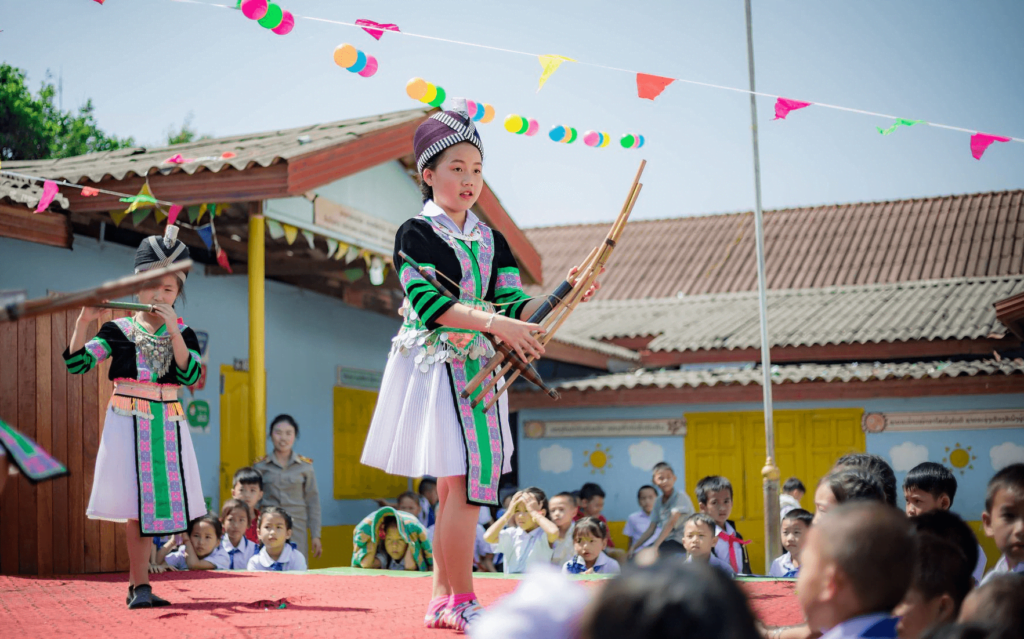
Checking Hmong Male Privilege
There’s a lot of misunderstanding about male privilege in our community. One of the reasons is that we often look at it from a purely traditional point of view or purely from a western feminist point of view. Unfortunately, this makes it difficult for us as men to understand just exactly what kind of privilege we have and how we can use it to better ourselves and our community. It also impacts the women in our families and how they build relationships with men. Although there are a lot of pieces to this puzzle, I’ll be looking more closely at what Hmong culture does to give power and privilege to men. In understanding this dynamic, we Hmong men can begin letting go of the unconscious biases that our culture instills in us. To start this off, we should ask some key questions:
So how does our culture discriminate?
The idea of equality rests on the idea that all people are individuals who have equal value and worth. However, Hmong culture does not see everyone as individual people. It sees everyone as a family unit, and only recognizes the head of these households as fully grown, complete people who have value. I have an older friend who became a board member of a Hmong organization in his early thirties. When he first spoke up to give his opinion, one of the older board members said, “You don’t even have a wife and kids yet. Your opinion doesn’t matter.” As a Hmong men, we need to recognize that our culture’s values don’t just discriminate against women; it discriminates against everyone. Our culture instills in us the tendency to unconsciously invalidate people and their worth because they are younger, because they are women, because they are unmarried, and so on. As a man, if you want to know what the feeling of being discriminated against because of our culture is like, just think about a time when an elder or older brother got his way even when he was wrong, simply because he was born before you were. Didn’t feel too good, did it? Now imagine this happening to you for the rest of your life because of your gender.
But why does our culture discriminate against women?
Growing up did you ever wonder why it’s completely normal for daughters and mothers cooked and cleaned while sons played video games or watched TV? Did you ever wonder why parents gave sons more leniency than daughters? What about why only men get to sit at the table? It’s primarily because in Hmong families, Hmong men are the only ones that can hold the family name. For this reason men, especially fathers, are considered the family. The family exists and is recognized only because the men exist. That means our culture will never acknowledge women and children independently from men. In doing so, our culture creates a power imbalance completely in favor of men in families. For this reason, men can easily put themselves ahead of their families. This isn’t to say that there aren’t great Hmong brothers and dads out there, but it is to say that our culture creates a situation where Hmong families cannot hold Hmong men accountable when they make poor decisions. That’s why a Hmong man can say, “I’m going to go to Thailand for five months, give up my responsibilities to my kids and wife, and on top of all that, marry a second wife to start a new family.” All the while nobody has the ability to stop him.
Also because men are representative of the family, they often enforce their perspective of life to their family members. Some use their privilege to limit what other family members can do. A dad can forbid a daughter from going away to college, in fear that she may do something that might embarrass him. Brothers sometimes feel responsible for their sisters and will enforce their own ideas of what is right for their sisters, like who they should date or whether they can go out. These behaviors may seem understandable that these men are simply looking for the interests of the family, but they do not respect the individuality and choices of their family members. This creates a culture of dominance and distrust between men and women in our community, which results in poor communication and relationships between men and women.
What can I do as a Hmong man?
The values of respecting elders, having strong families, and a rich culture are important and we should cherish and maintain them. However, men need to be aware of how the problematic aspects of our culture are undermining these deeper values and actually breaking down our community. Want to know why lots of young Hmong women don’t want to marry into a Hmong family? Part of it is because they don’t want to be discriminated against for the rest of their life. Want to know why there’s a generation gap? Part of it is because so many elders just won’t listen to those younger than them. Want to know why we Hmong men aren’t doing as well as Hmong women? Part of it is because our older brothers and fathers won’t relate or connect to us. Our community is struggling not just because we’re refugees in America, our cultural biases create a lot of problems as well. The first step is to look at ourselves and admit there are problematic aspects of our culture that influence how we treat and relate to our own families. Only then we can make a conscious effort to try to get rid of those biases so that we can actually relate to the people in our lives.
Here’s a list of things you can do to use your male privilege in a way that helps your family and community.
1. Take your time and freedom to connect with or mentor younger Hmong men. Don’t just be a role model and give general advice. Young men need someone older to relate to and connect with to sort through their problems and experiences. Unfortunately older Hmong men who are willing to be open and understanding are in short supply.
2. Be aware of when you can help the women in your life and do your part. Doing dishes, cleaning, and other chores are not the responsibility of one gender. It’s just work to be done and everyone should help out to get it done faster.
3. Check the men in your life when they abuse their privilege. If a man is putting himself ahead of his family, remind him of his responsibilities and the value of the relationships he’s breaking.
4. Treat women as independent individuals who are equal to you and support them in their choices.
5. Don’t worry and think about helping the whole community; focus on the relationships in your family and friends. They’re actually much more important.
6. Stop trying to live up to being a “Hmong man.” You are already one and you’ll always be one, no matter what you do. Instead, try to be a better human being.









Responses